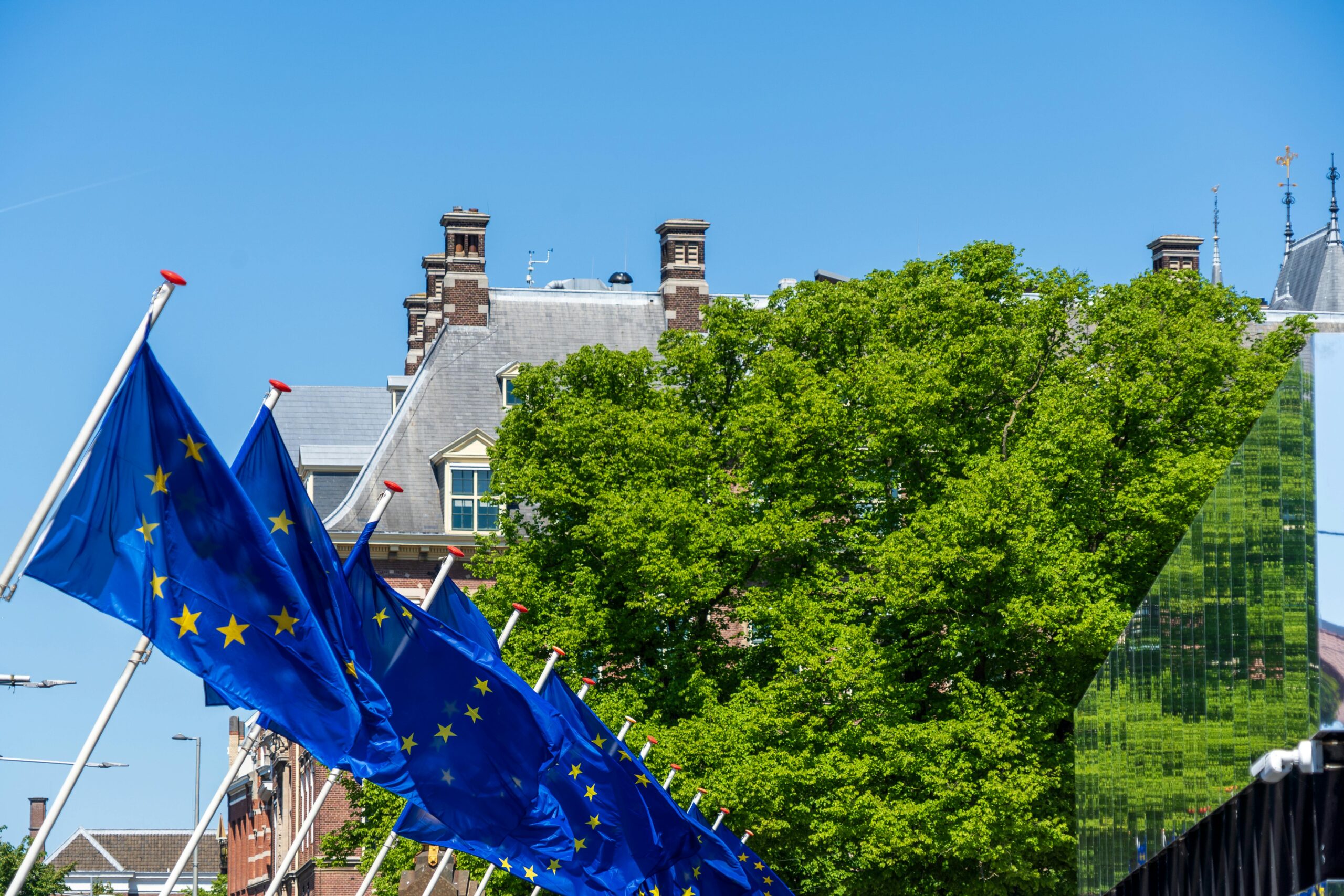Wednesday’s vote (29 October) signalled a political change, and much of the same. Based on the latest exit polls, the progressive-liberal D66 (Renew) is expected to win narrowly from the far-right, anti-immigration PVV (Patriots) (99.6% of votes counted, waiting for results from five municipalities and over 135,000 mail-in ballots). Having campaigned on pragmatic optimism, the D66 leader now takes the lead in forming a government to tackle long-standing issues.
Mr Jetten’s D66 would prefer a coalition between Christian-conservative CDA (EVP), conservative-liberal VVD (Renew) and centre-left GreenLeft-Labour (GL-PvdA, Greens and S&D). However, VVD leader Dilan Yesilgöz has run her campaign calling a left-wing coalition with GL-PvdA “totally unbelievable”. All parties have explicitly excluded PVV’s Geert Wilders from working together.
The only other potential coalition partner, the far-right JA21 (ECR), would be endorsed by the VVD. Meanwhile D66 and CDA have publicly stated that major policy differences on asylum, climate, and nitrogen complicate talks. This coalition would also lack sufficient backing in the Senate.
Jetten has emphasised the need for a “stable cabinet with all the positive forces in the centre”. CDA leader Henri Bontenbal wants a “stable, competent government”, stressing the importance of accountability (but signalled on Thursday that coalitions without his party “are also possible”). GL-PvdA leader and former Commissioner Frans Timmermans has resigned after disappointing early results, which could ease relations with other parties, as many of the other leaders complained about poor personal relations.
What it means for business
For business, the overall outlook is one of stability and continuity, rather than sweeping change. D66, VVD, CDA and GL-PvdA have all underwritten the importance of European competitiveness, strategic investment, and a predictable regulatory environment. Priorities include innovation, energy transition, and industrial resilience in key sectors such as semiconductors, clean energy, and defence.
D66, VVD and CDA share a pro-business, market-oriented stance, suggesting tax and regulatory stability. GL-PvdA’s participation could bring calls for higher corporate taxes or stricter social and environmental standards, though these would likely be moderated in a centrist coalition. CDA campaigned on a “freedom contribution” to finance increased defence spending, paid in equal parts by industry, citizens, and government spending cuts. All parties back simpler rules, faster permitting, and less red tape, which could ease compliance costs.
Outstanding questions
The bigger question is whether a new coalition will finally deliver structural reforms in infrastructure, labour mobility and agriculture to safeguard competitiveness. Congested electricity grids have prevented industry from electrifying to cut energy costs. A lack of supply-side guidance has, moreover, favoured established but low-performing sectors reliant on migrant labour, exacerbating pressures on housing, welfare, and social cohesion. High nitrogen emissions caused by intensive agriculture are capping opportunities for housing and industry.
The last coalition operated in a constant campaign mode, making it nearly impossible to reach compromises on these issues. It remains uncertain whether a new coalition will be differ and effectively tackle these interlinked issues.

